Don’t ruin your summer
From annoying insects to slippery decks, there are all sorts of perilous threats just waiting to ruin your summer. But most of them are preventable if you know what to look for. You’ll learn how to be safe in the backyard, at the pool, while you’re grilling, and everywhere else that’s enjoyable in summer.
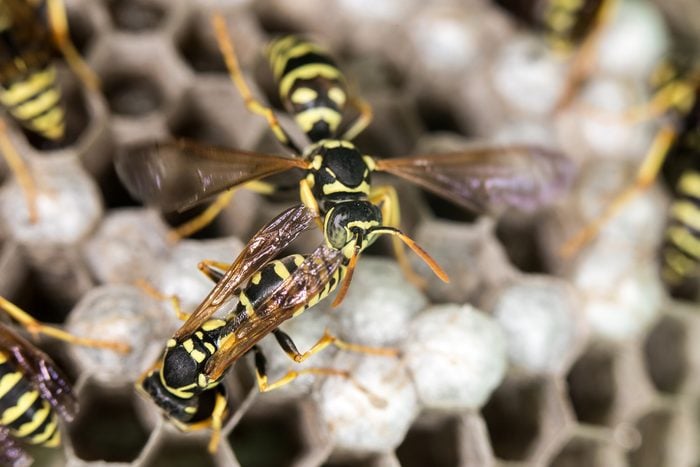
Control the pests
You might expect nothing more than some pain, itchiness, and swelling from bee or wasp stings, but people with allergies can have a life-threatening allergic reaction called anaphylaxis. Symptoms typically include two or more of the following: itching and hives, swelling in the throat or tongue, trouble breathing, dizziness, stomach cramps, nausea, and diarrhea, reports the American Academy of Allergy, Asthma, and Immunology. In severe cases, a person can go into shock and lose consciousness. If you see or experience these symptoms after an insect sting, call 911. The reaction can be deadly.
You can help ward off pests by wearing bug spray—and avoiding sweet-smelling perfumes. Here are some more bug bite symptoms you should never, ever ignore.
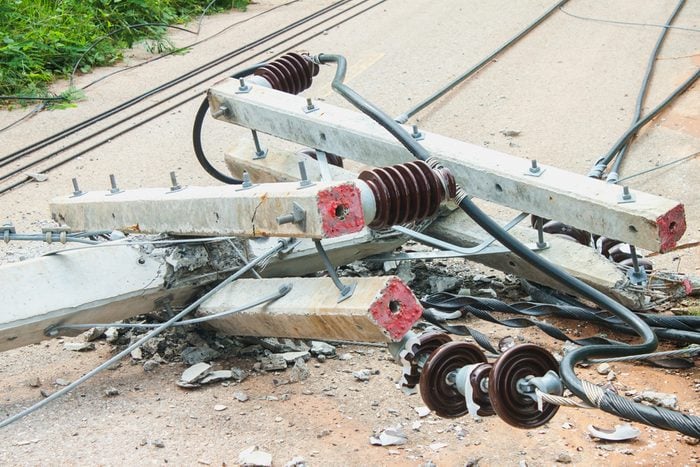
Stay far away from downed power lines
Summer storms can easily knock down power lines, maybe even right in your yard. Don’t let curiosity kill you. If a storm brings down a power line, be sure to stay away and keep others, including pets, away from the lines. Downed power lines can carry an electric current strong enough to cause serious injury or even death, according to the Electrical Safety Foundation International (ESFI).
But it’s not just the immediate area that’s dangerous. According to the ESFI, the ground up to 35 feet away around power lines may also be live. Because you can’t tell whether a downed power line carries an electric current just by looking at it, you should assume that all downed lines are live and carry an electric current.
The ESFI recommends moving away from a downed line by keeping your feet together on the ground at all times and shuffling with small steps. If you see a downed line from a storm, call 911. Here are 10 tips for staying safe in a thunderstorm.
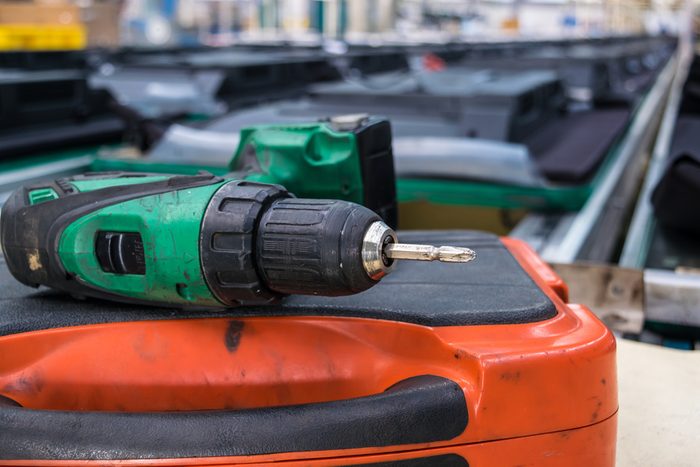
Watch power tools around the pool
The National Fire Protection Association stresses that electricity and water don’t mix. Keep electrical appliances, equipment, and cords at least 6 feet away from pools and other sources of water. If you can, use battery-operated devices instead.
Have an electrician routinely check all the electrical equipment that keeps your pool or hot tub running. Make sure you know how to turn off power in case of an emergency. Look out for underwater lights that are flickering or don’t work all the time. Here are some more hidden pool dangers you should know about.
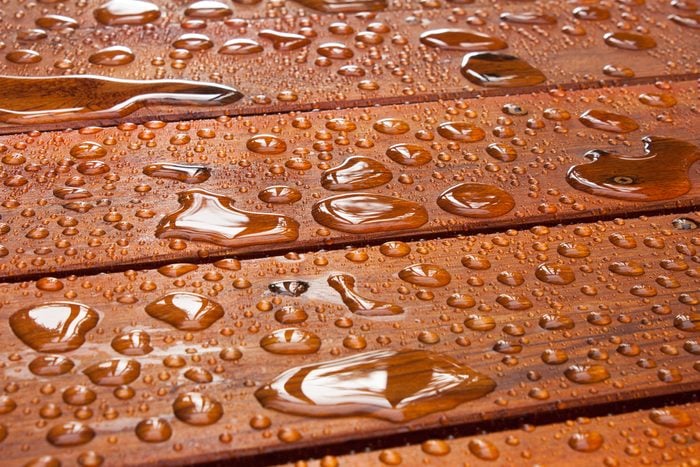
Tripping hazards
Slippery pool decks, wooden decks, curbs, and holes can lead to stubbed toes or broken bones. Decks can become slippery because of mildew, algae, or moss. “The best way to prevent slippage on your deck is to keep it clean,” recommends J.B. Sassano, president of the residential and commercial repair, maintenance, and home improvement company Mr. Handyman.
Take a look around your yard for hazards—make sure any holes are marked and can be fixed. Installing path and stake lights can help prevent accidents along footpaths by illuminating the walkway, suggests Lowe’s yard expert Matt Michaels. “If you have a deck, attach lights to the structure and stairs to prevent falls,” he says.
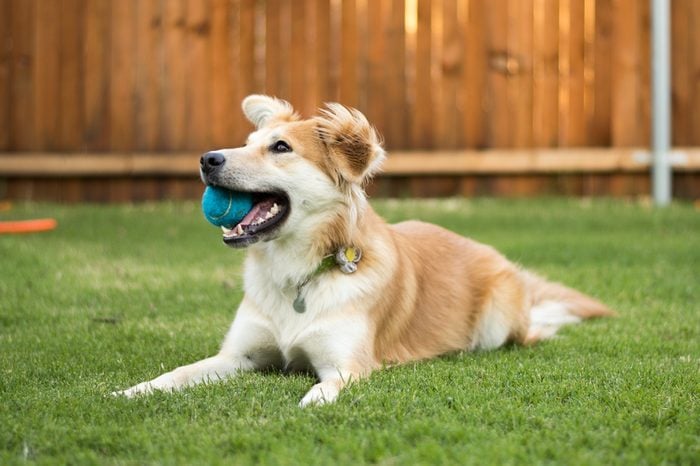
Protect your pet
Having a cookout in your backyard this summer can lead to potential dangers for pets. “Have an outdoor trash can where you can dispose of scraps that could harm your pet. Be sure to store food on a high surface away from pets,” suggests Michaels.
Keep picnic food out of reach from any counter-surfing pets. Be especially careful about human foods that can be dangerous to your pets like raw meat, raisins, grapes, onions, and garlic, says the U.S. Food and Drug Administration. Fried and fatty food like fried chicken can give your dog a stomachache. Too many salty snacks—like a lot of chips or pretzels—can make your pup sick. Be sure your dog has plenty of clean water all the time. (Learn why it feels so good to look in your dog’s eyes.)
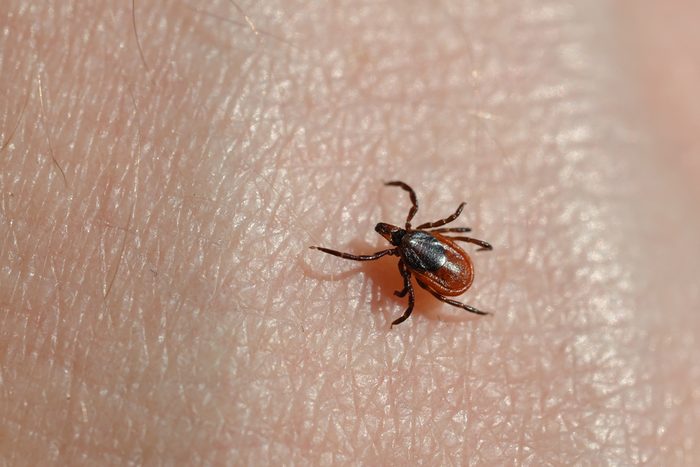
Guard against ticks
One easy and budget-friendly way to prevent ticks is to create a buffer zone around your lawn and garden, especially if you live near a wooded area, suggests the Centers for Disease Control and Prevention (CDC). Clear tall grass and brush around you home and at the edge of your lawn. Then place a three-foot barrier between your lawn and the wooded area. Fill it with wood chips or gravel so ticks can’t migrate from the woods into areas closer to your home. Be sure to mow your lawn often and keep leaves raked. Ticks are just one of the dangerous types of bugs you need to watch out for this summer.
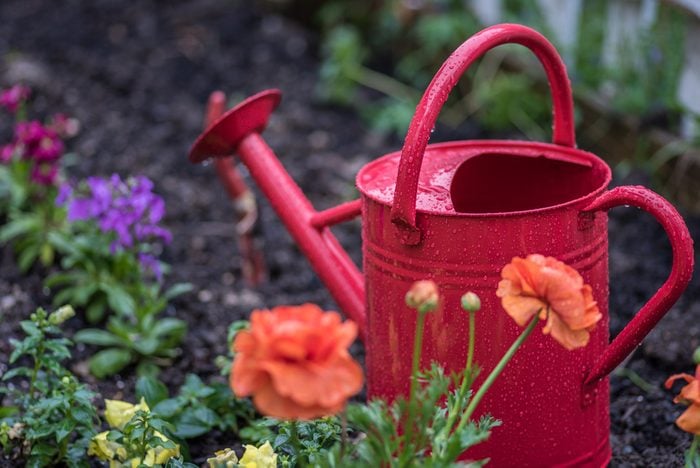
Standing water
Make your yard less desirable to mosquitoes by removing standing water, suggests the Environmental Protection Agency (EPA). Mosquitoes need water to breed, so don’t let water sit around anywhere. By getting rid of anything that collects water, you can decrease the number of mosquitoes that hatch in your yard. Empty out watering cans, plastic bags, tarps, tires, toys, swimming pools covers, or anything else that can collect water and attract mosquitoes. Learn these weird reasons you’re being bitten by mosquitoes.
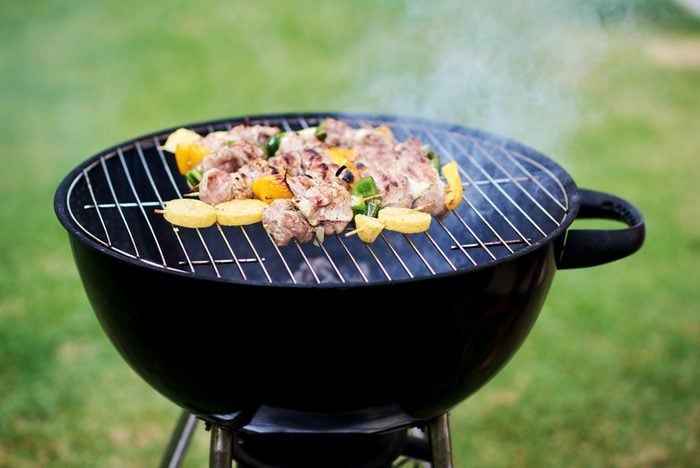
Place your grill properly
Be sure to keep your grill at least 10 feet away from your house, suggests the Consumer Product Safety Commission. Don’t use it in a garage, breezeway, carport, porch, or under any surface that can catch fire. The CDC suggests using a moist cloth or paper towel to clean the grill’s surface before cooking. If you use a wire bristle brush to clean grates and burners, check the surface before firing up your grill. Tiny bristles from the brush can come loose and stick on food while cooking. Make sure you’re not making these common grilling mistakes.

A poorly lit driveway
Installing security and floodlights with dusk-to-dawn or motion sensors will help you and your guests avoid accidents. It will also lessen the likelihood of suspicious activity in and around your home. “When installing these lights, be sure to choose bulbs with wattage that’s high enough to illuminate your driveway but low enough to be confined to just your property,” advises Michaels.
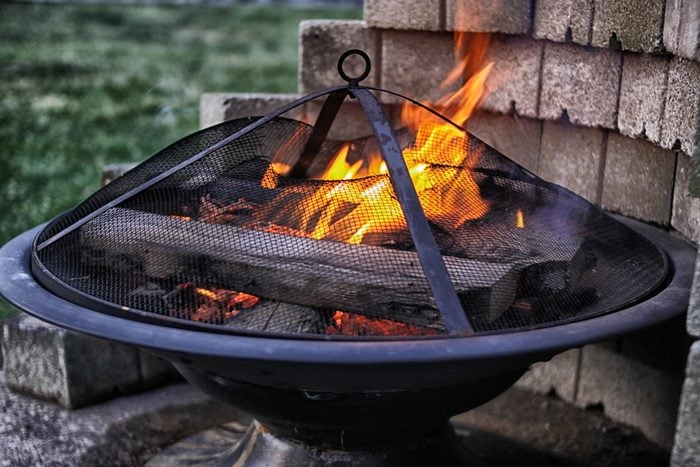
Firepit placement
Fire pits are fun, but you need to make sure there’s enough room for you and your guests to maneuver around the pit comfortably. Check with your local government to see if there is an ordinance. Some require that fire pits must be 10 feet or more from homes, trees, or anything that can burn. If you burn wood in your pit, the EPA suggests using only dry, seasoned wood, which burns hotter and cleaner. The agency suggests converting your pit to natural gas or propane to reduce harmful air pollutants.
Now that you know how to keep your backyard safe, learn about the summer health dangers you’re probably ignoring.
